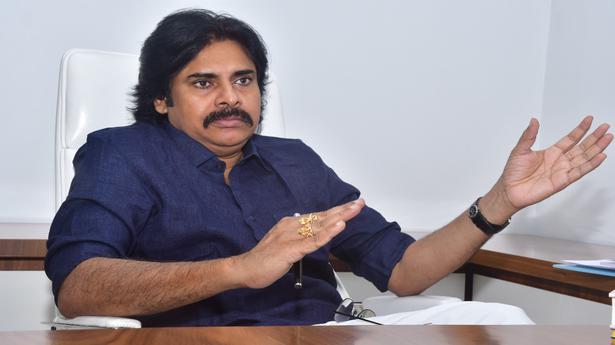
JSP for caste-free politics, SCS and undisturbed social fabric: Pawan Kalyan
The Hindu
YSRCP misused opportunity given by people, fading out gradually, says JSP Chief
Jana Sena Party (JSP) will stand for caste-free politics, Special Category Status (SCS) and a society that united as Andhra Pradesh, not as castes and sub-castes, says the party president and actor Pawan Kalyan. In an exclusive interaction with The Hindu at his party office here, the JSP chief says the ruling YSR Congress has failed on all the promises it made to people and is fading away in several districts.
Commenting that the present government has promoted rivalries among the castes through undesired means, Mr. Pawan said the State should be united as people of Andhra Pradesh to restore the social fabric and JSP will strive to achieve the goal.
YSRCP should go as it betrayed youth, employees, teachers and farmers. Despite enough strength in the Parliament, the fight for SCS was ignored by the party according to him.
“Instead of ban on liquor, its sale is promoted through numerous brands. And no Capital city for AP; no development, roads are in a pathetic state, no new industries and no employment. All sections of the society are unhappy about the governance and it is evident in the way leaders are facing the heat from the public today,” Mr Pawan reasons out. The loss is gradual, not seen at a go. YSRCP is washed out in a couple of districts and is fast fading out in many districts, he commented.
Speaking about the irreparable damage done to AP through illogical and unjustified bifurcation, he said that the political parties have sacrificed people’s interests for their own selfish gains. “Eight years on, there are several bifurcation issues pending and unresolved and it was a huge loss to AP but the parties have become mute spectators. People will not keep quiet; they will give it back. As we can see, Congress has lost AP and TDP has lost Telangana,” he said, adding that the people of AP should unite and fight for their rights in this regard.
JSP growing strong:













